By CGTN's Feng Xin
Marrying the wrong person and ending up divorced can be troublesome enough for many people. But a judicial explanation of China’s marriage law has made the problem much bigger for some. That's because under a clause in the law known as Article 24, thousands of people across China have been forced to pay off the debts their ex-spouses secretly accumulated during their marriage.
Article 24
Zhou Wei never expected to fall into debt over a loan she never took on.
Two years before Zhou’s divorce in 2014, her then-husband borrowed 540,000 yuan, or about 77,000 US dollars, from a neighbor to fund a company construction project. He never told Zhou about the loan and put both of their names on an IOU. The money then went into a company account.
When her ex-husband failed to pay off the loan, the creditor sued the couple. The court ruled that Zhou should also repay the debt, because the loan was taken out during her marriage.
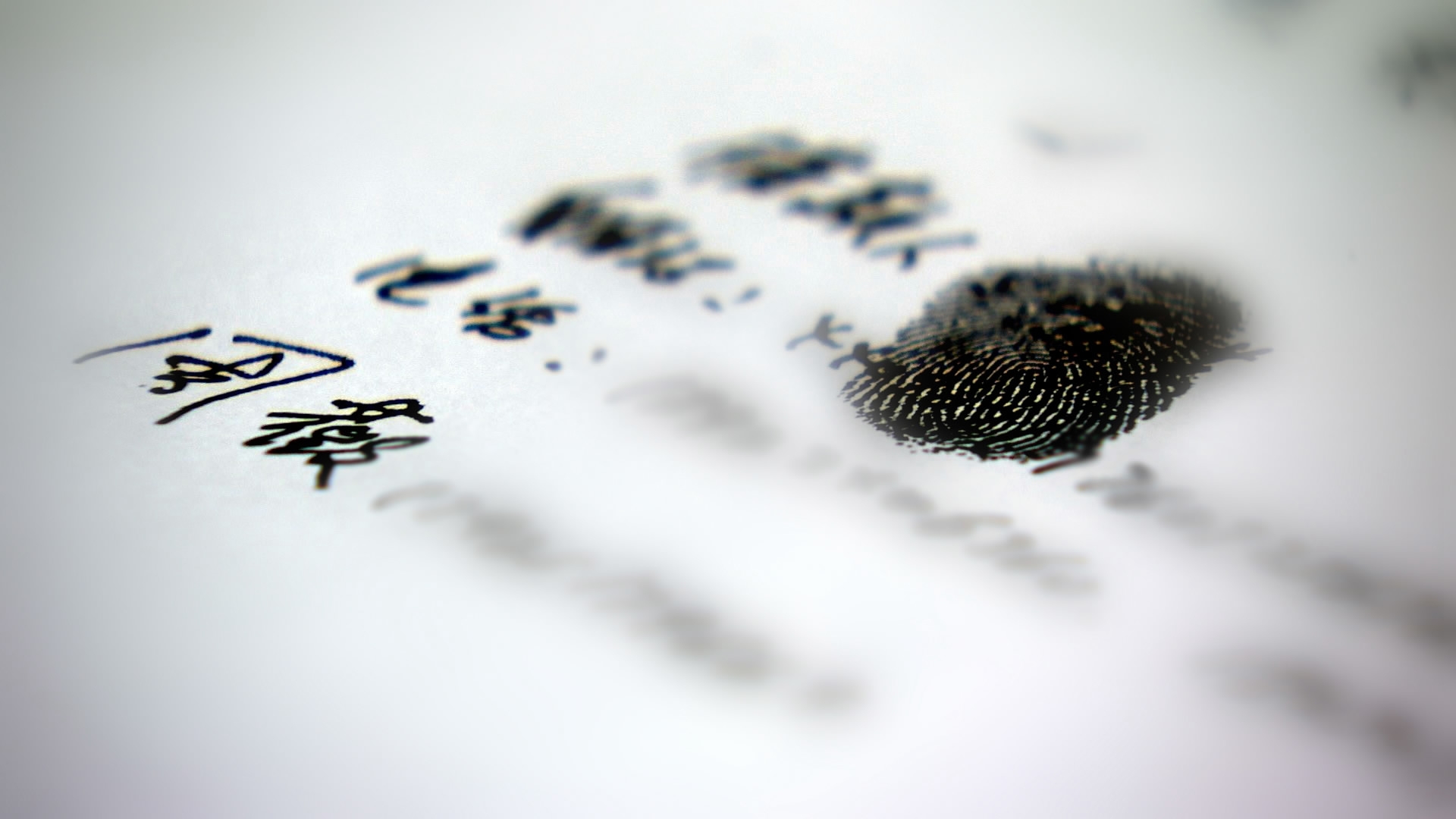
The IOU on which Zhou’s former husband put her name without her knowledge. /Feng Xin Photo
The legal basis was a judicial interpretation of China’s marriage law issued by the country’s Supreme Court in 2003. Its Article 24 states that: “Debts incurred by one spouse should be paid off jointly. That's unless the other spouse can prove that the debtor and the creditor clearly agreed that the loan was personal.”
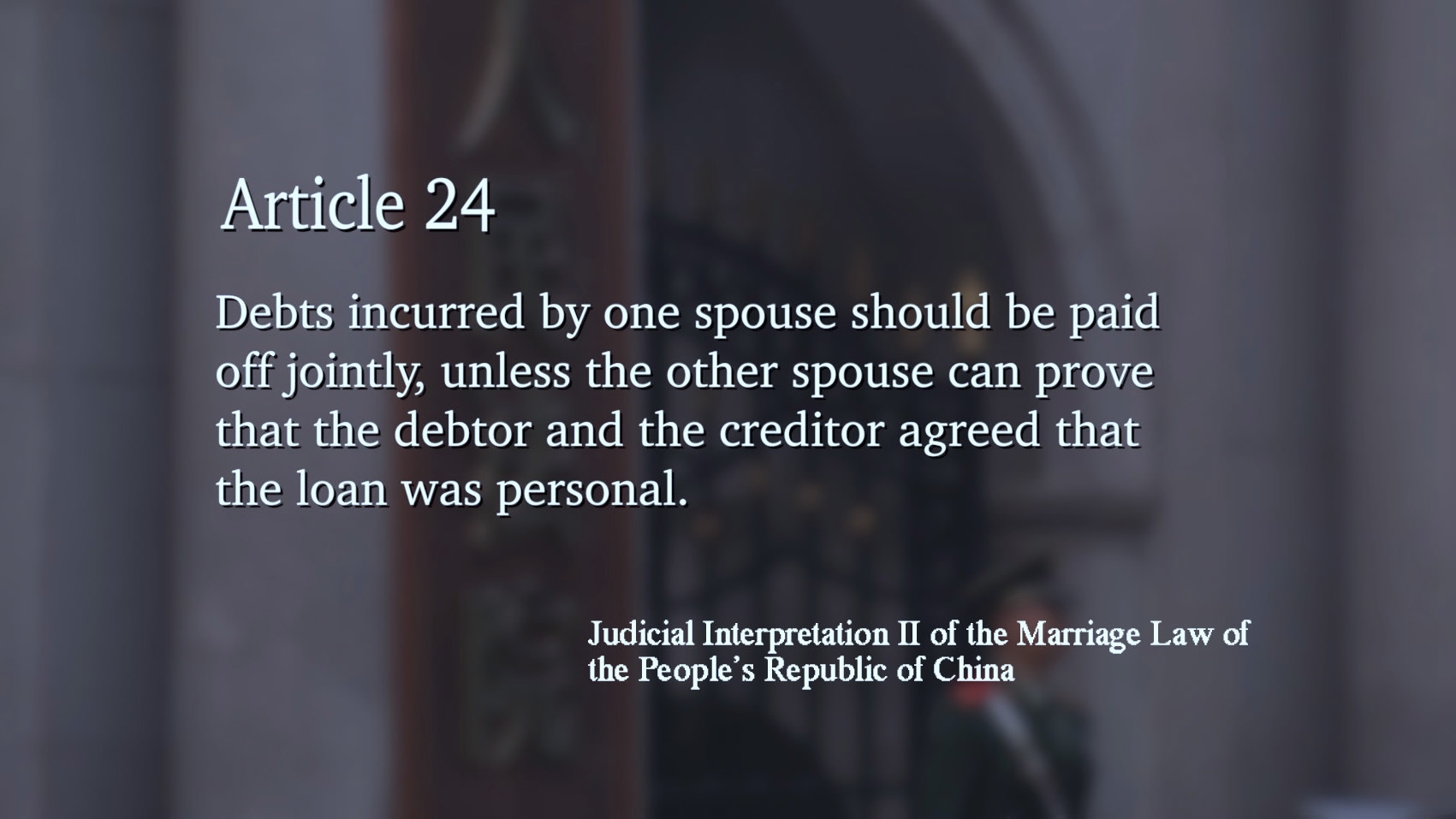
CGTN Photo
“I have no way to prove this,” Zhou said. “I never took part in the loan, so how could I prove that the money was never used for my family life? How could I prove where it came from and went? What’s worse, I have no way to prevent something like this from happening,” she said.
21 million RMB of debt
Wu Liufang was similarly caught off guard when she received 15 subpoenas just one month after her divorce. She was being sued by eight creditors and asked to pay off 21 million yuan, or 3 million US dollars.
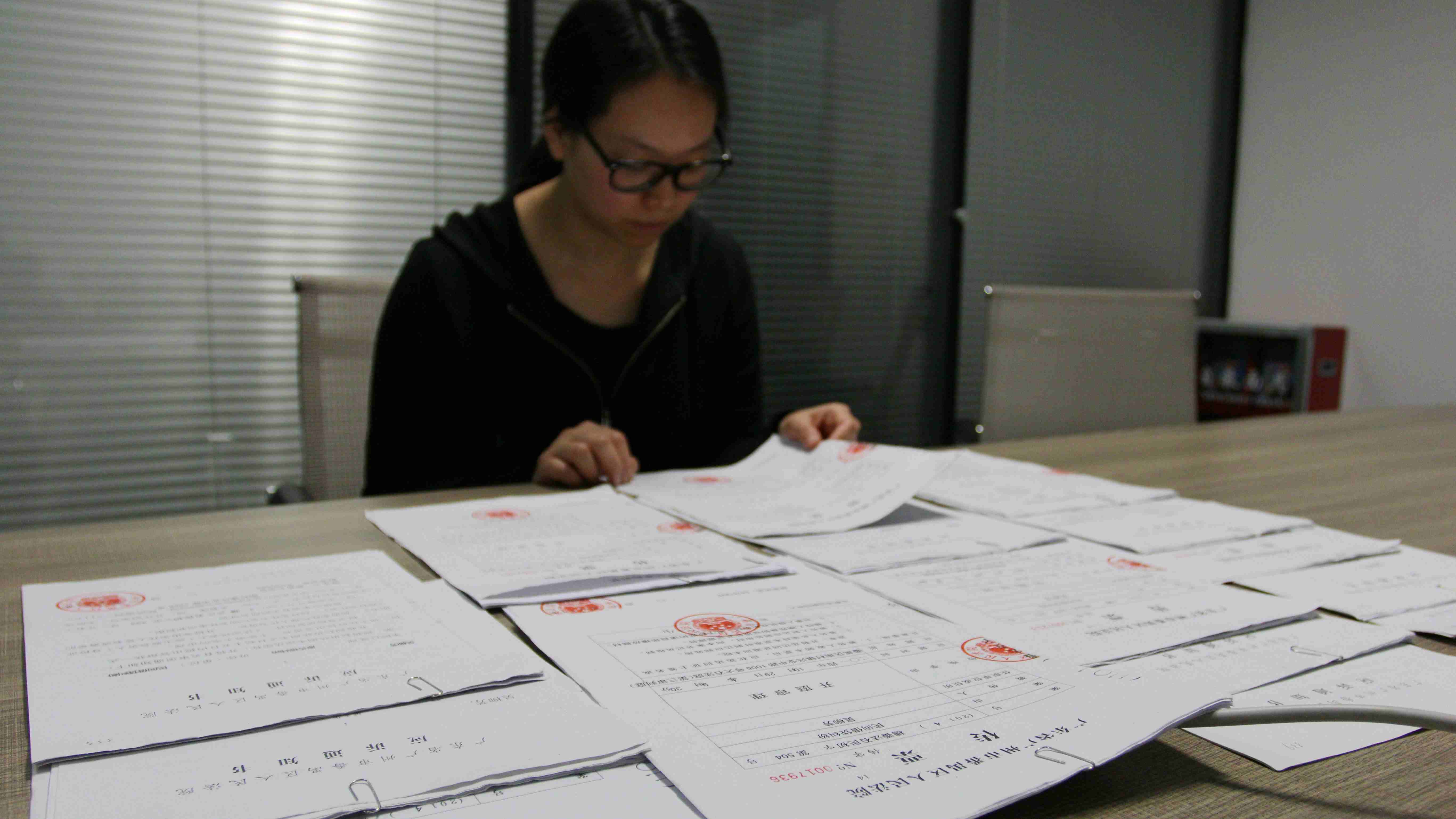
Wu Liufang shows her 15 subpoenas at her lawyer’s firm. /Feng Xin Photo
Her former husband admitted that he borrowed the money without Wu’s knowledge while they were still married. All of the money was spent on gambling. However, the creditors claimed that they didn’t know what the money was used for, and there was no evidence that gambling was involved. The court subsequently ruled that the loan was legal and Wu should also be held liable.
“I was angry, shocked and helpless,” Wu said. “I went to petition at the higher people’s court, but the officers there told me that as long as I can’t prove that every penny of the 21 million yuan was spent by my husband on gambling, I would have to bear it as a joint debtor. The judges all followed Article 24. If the law doesn’t change, the ruling would be the same. When I heard this, I just couldn’t help bursting into tears right away,” Wu said.
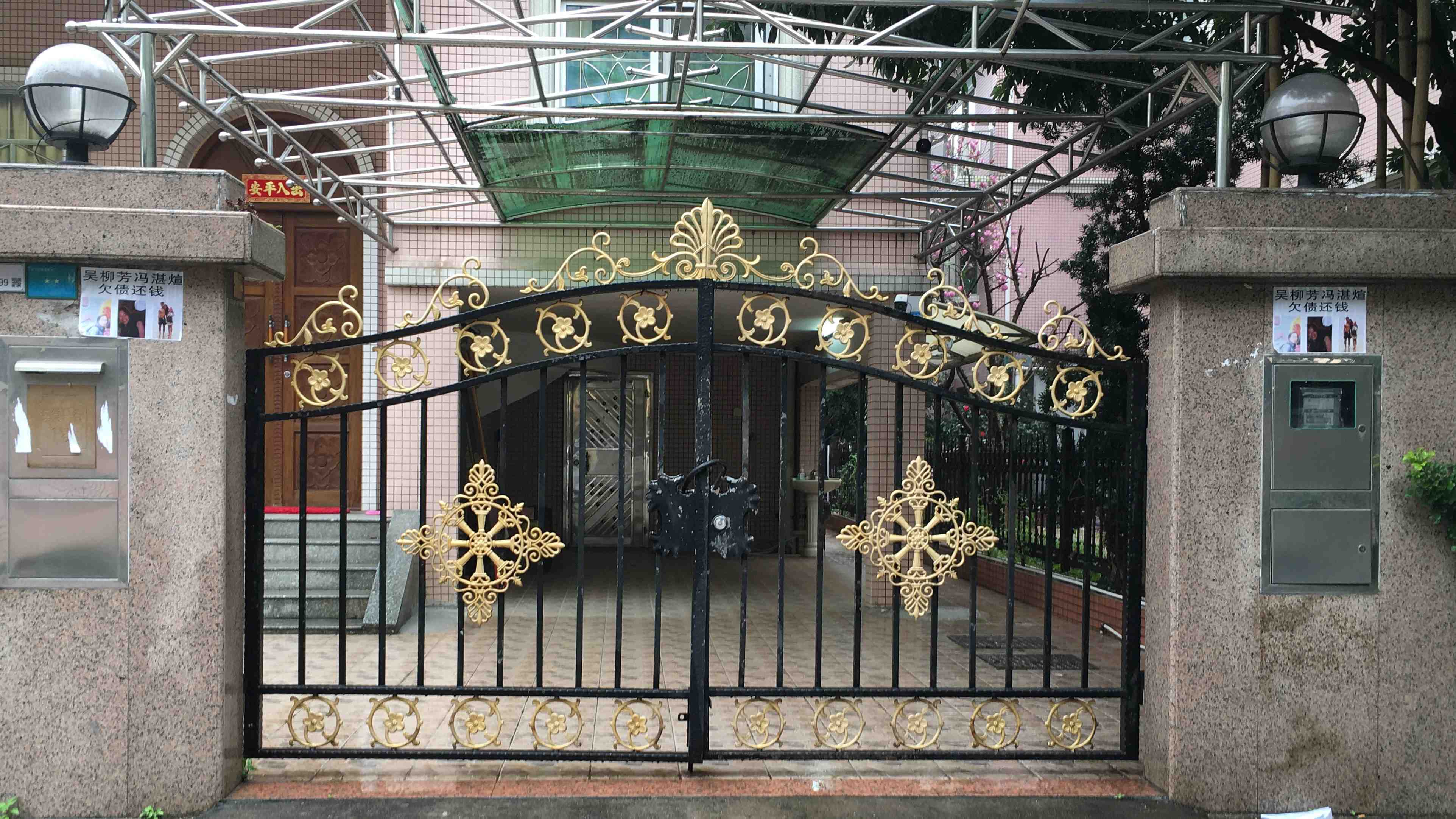
Wu’s house has already been forcibly sold by court to pay off her ex-husband’s debt. /Photo provided to CGTN
An intermediate court affirmed the original ruling and the higher people’s court rejected her request for a retrial. Wu’s house was forcibly sold by the court, and her former husband has since disappeared. As a result, all of the creditors are now going after Wu and her family.
“These creditors hired gangsters to stalk around my workplace, my kids’ kindergarten, my home and my parents’ home,” Wu said. “They put posters and banners spreading my parents’ information. They even installed a location tracker under my car to stalk my family and me,” she said.

Wu shows surveillance footage of gangsters stalking outside her parents’ home. /Photo provided to CGTN
Burden of proof
Wu has been working with her lawyer to request a counter-appeal from the prosecutor’s office, but they have little hope for success. That's because the burden of proof specified by Article 24 makes overturning such cases virtually impossible.
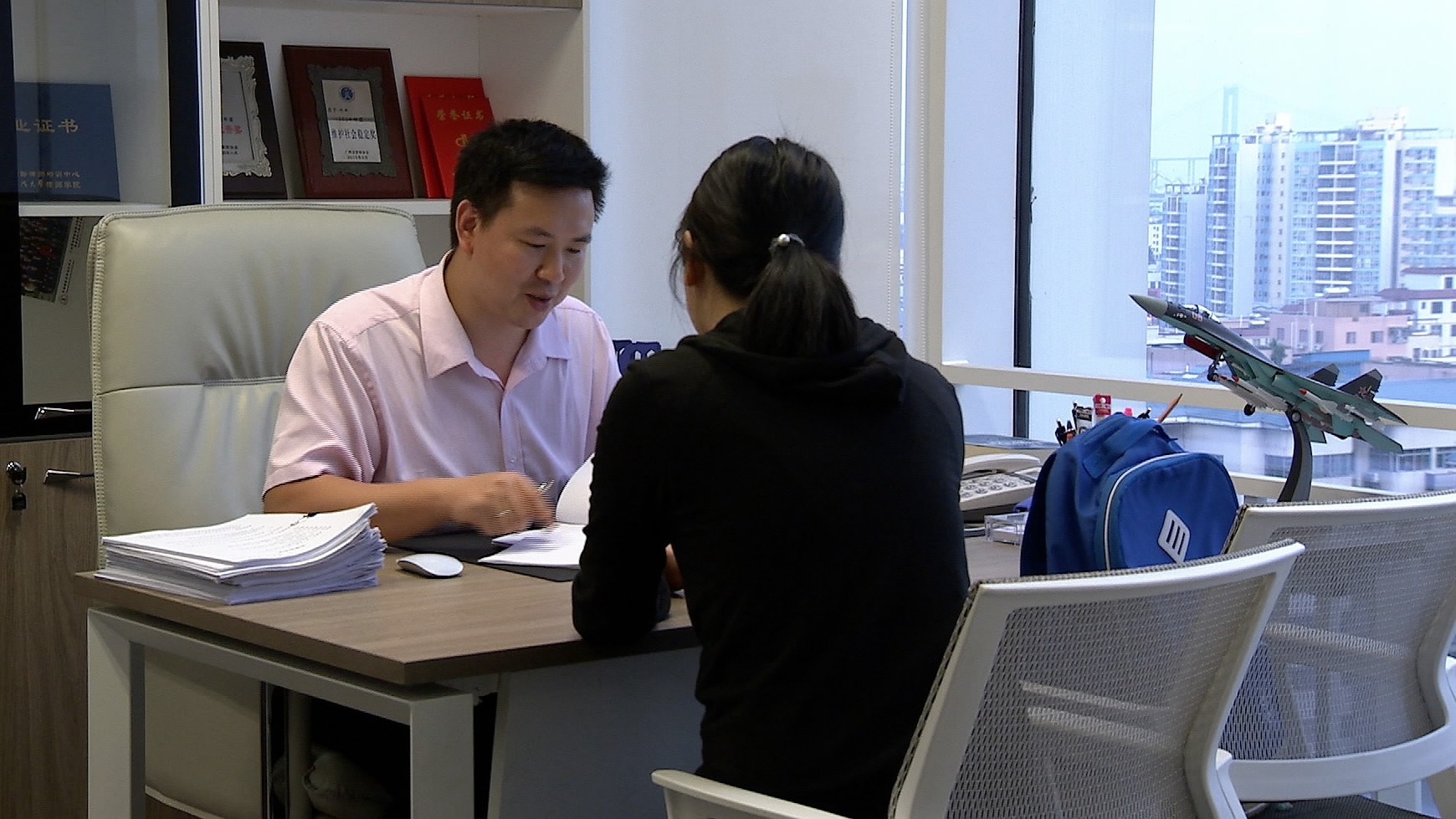
Wu talks with her lawyer. /Feng Xin Photo
“In law, we should only prove things that happened but not something that didn’t happen,” said Liu Xue, Wu’s lawyer. “In this case, we are required to prove that the debt was NOT used for their married life. Article 24 is in fact a legal presumption, which exempts creditors’ burden of proof in the first place. However, a presumption doesn’t always tally with the facts, so the judge should base on facts at the end,” he said.
Family lawyer Wu Jiezhen said that Article 24 was intended to protect creditors' interests and prevent couples from escaping legitimate debt by getting a divorce, but good intentions can generate unintended harms.
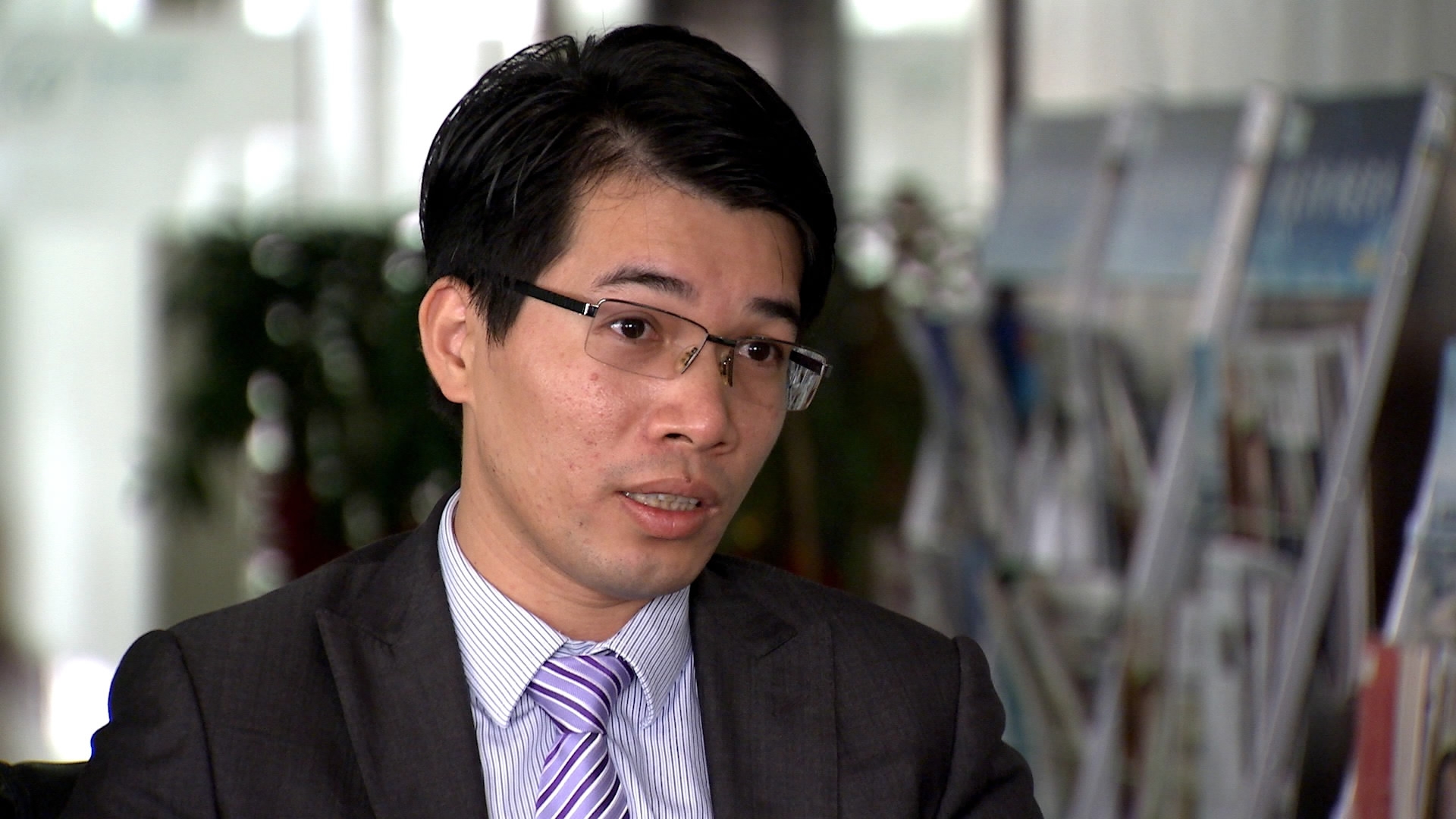
Family lawyer Wu Jiezhen. /Feng Xin Photo
“If we are all aware of such a system where one spouse has no way to avoid the secret debt the other borrows, the trust and security in marriage will be gone,” Wu said. “We talk about transaction security – creditors are now secured, but what about marriage? If marriage becomes an unsecured system, it will deeply hurt any couple and society as a whole,” he added.
Article 24 victim support group
Members of a support group in Guangzhou meet regularly to provide each other with help.
These women are all divorced and their experiences are similar. Their ex-husbands took out loans behind their backs and mostly spent the proceeds on gambling. All of the involved courts ruled that the women must repay their former husbands' secret debts.
Most of the women's cases have already been adjudicated and can't be appealed. Still, the women continue to push for legislative changes.
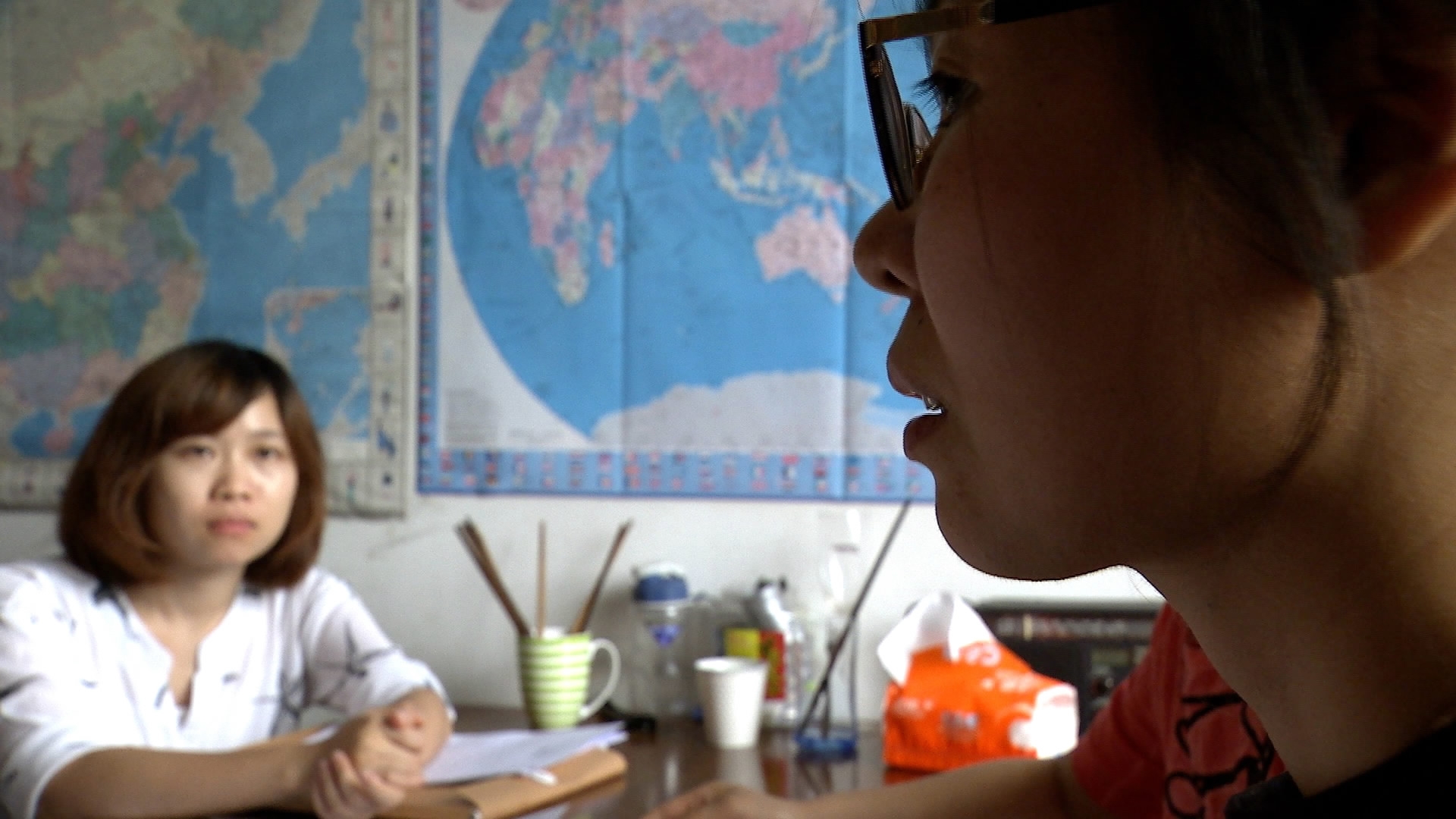
The women face tremendous difficulty in meeting the burden of proof under Article 24. /Feng Xin Photo
“We don’t know if the IOUs and subpoenas we are getting right now are the last ones,” said Liang Nvzhu, the liaison for Guangdong’s Article 24 Victim Support Group. “Only by changing the law, can we protect our children and ourselves. Also, since we are already victims, we don’t want our friends and family to encounter the same experience and get hurt by some malicious people who might want to take advantage of Article 24. That’s our motivation to change the law,” Liang said.
Journalist Li Xiuping is one of the founding members of the Article 24 Victim Support Group. She works for a state newspaper in Beijing and is burdened with 5.8 million yuan of debt her ex-husband took on without her knowledge. The court already froze her salary for six months and put her apartment up for forced sale.
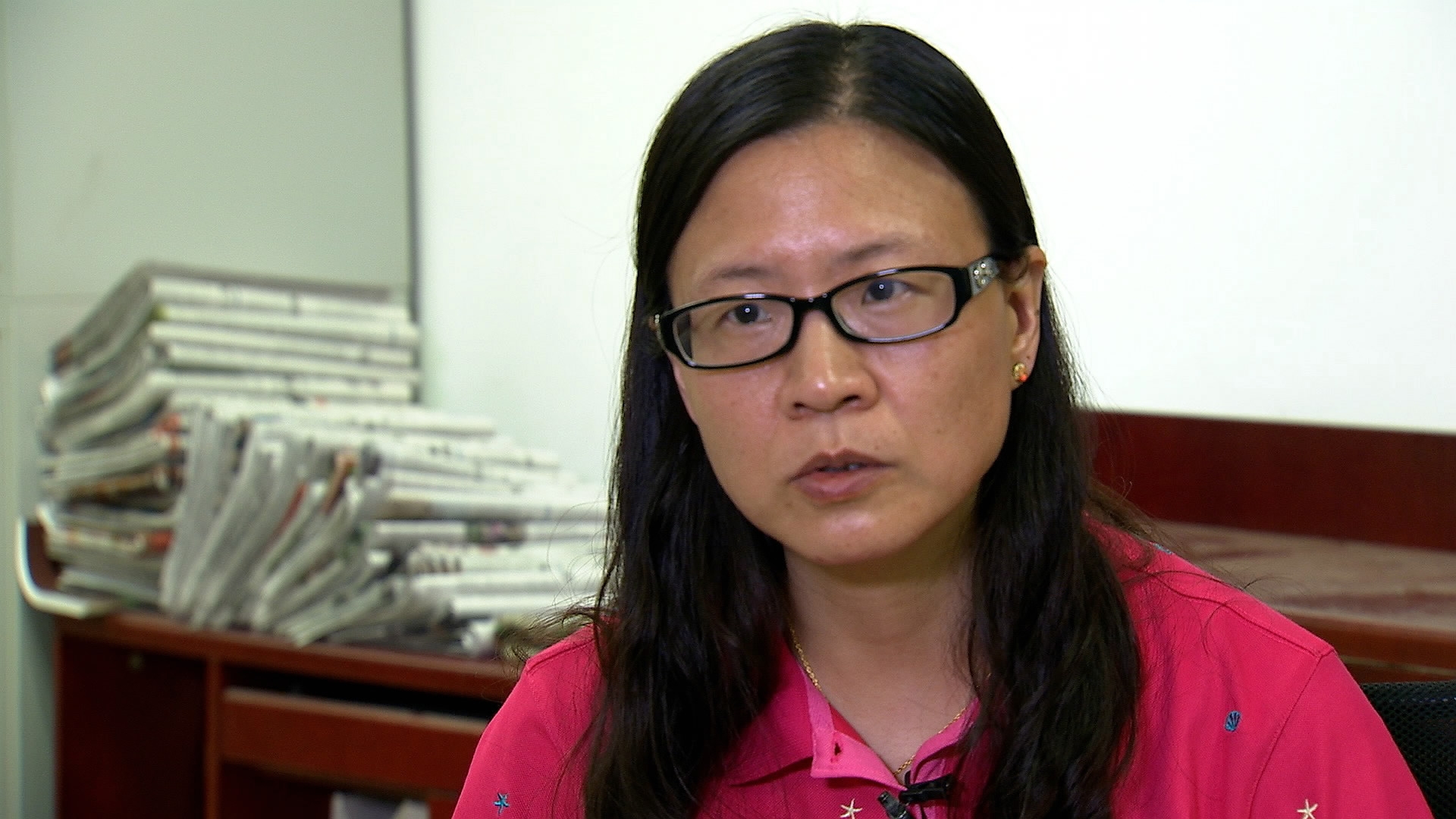
Li Xiuping. /Feng Xin Photo
Li worked with several other divorcees to conduct a nationwide survey in April. More than 1,100 respondents from 29 provinces provided their real names and court files for the cause.
"We found that the 1,000 respondents came from all walks of life,” Li said. “More than half worked for public institutions and more than 80 percent received higher education. They are actually the backbone of society. The creditors also showed clear patterns. More than half of them were professional lenders. Half of the debts were larger than 1 million yuan, some were 500,000 yuan in smaller cities. They clearly exceeded what we call families’ daily spending,” the journalist said.
The survey also showed that only 1.7 percent of the 700 respondents who had their cases settled successfully appealed. The former spouses face tremendous difficulty in meeting the burden of proof under the current judicial explanation.
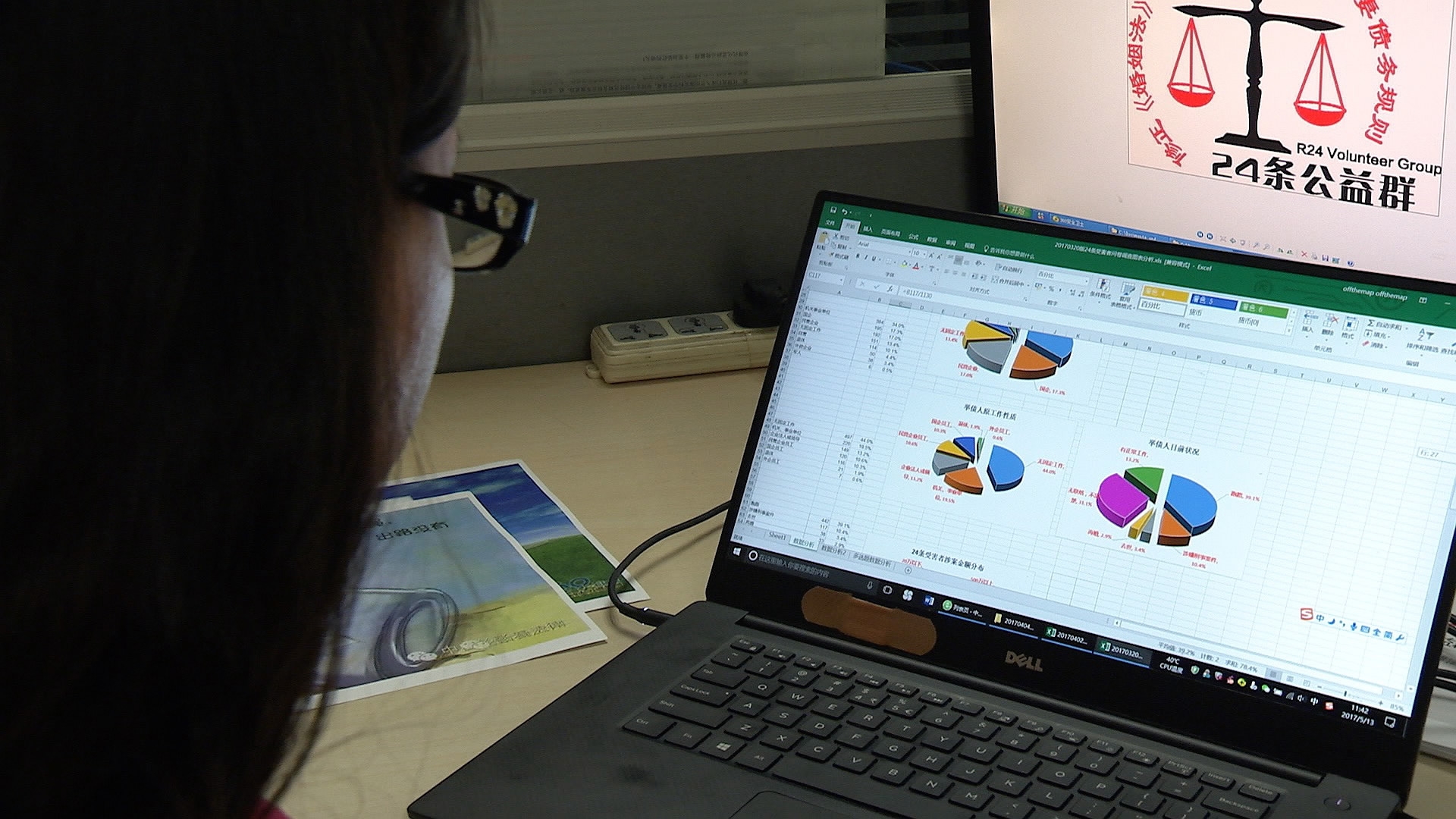
Li checks their survey statistics. /Feng Xin Photo
The Supreme Court’s provisions
Li and her fellow support group members have lobbied dozens of deputies in the national people’s congress, lawyers and women’s organizations to revise Article 24. But their effort has met with little success so far.
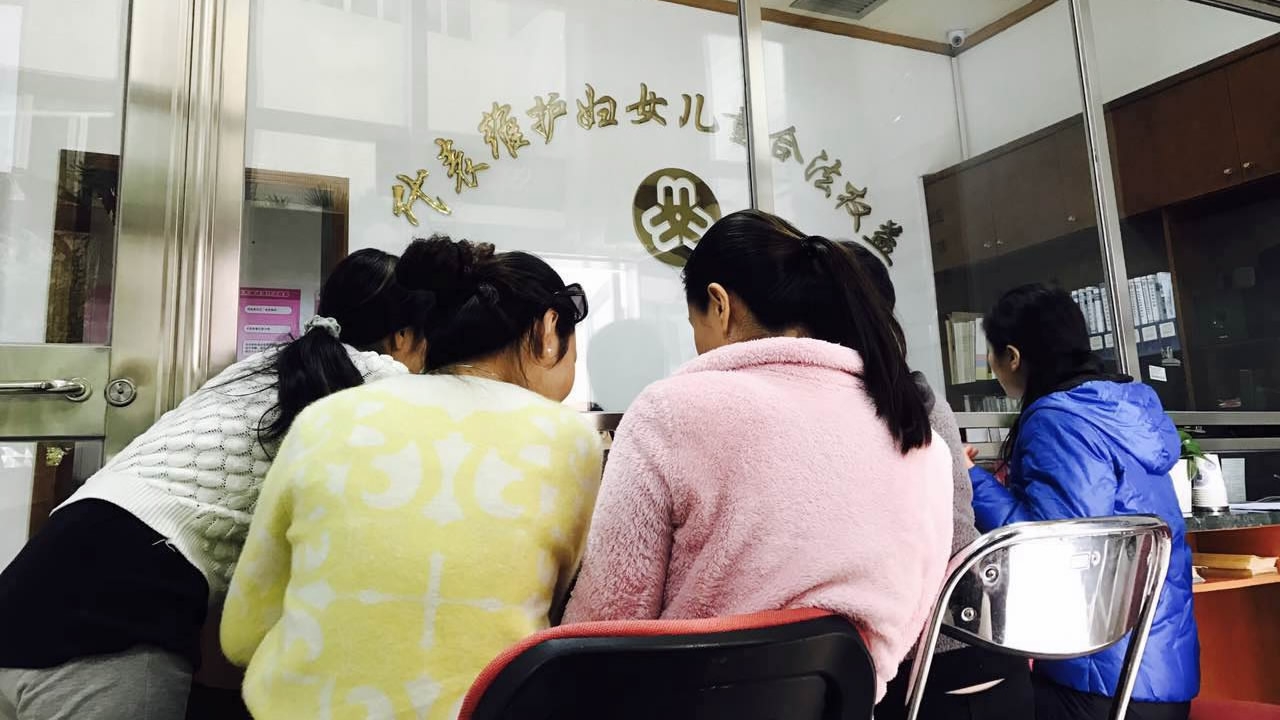
Members of the Article 24 Victim Support Group lobbied various organizations. /Photo provided by the Article 24 Victim Support Group
China’s Supreme Court issued two additions to Article 24 in late February. The court specified that debt isn't legally protected if it is fake or the proceeds were used for gambling, drug consumption or other illegal activities. Legal professionals say these additions provide little help, because fake or illegal debts have never been protected by law.
"We know that the fundamental problem of Article 24 is its definition of joint debt and burden of proof,” said You Zhilong, director of the Family Law Committee of the Guangdong Lawyers Association. “The new additions haven’t changed any of the rules, so they are useless. The Supreme Court is saying that Article 24 has no problems but judges need to be more careful. This is in fact shifting responsibilities onto judges’ shoulders. I think this is also wrong,” You said.
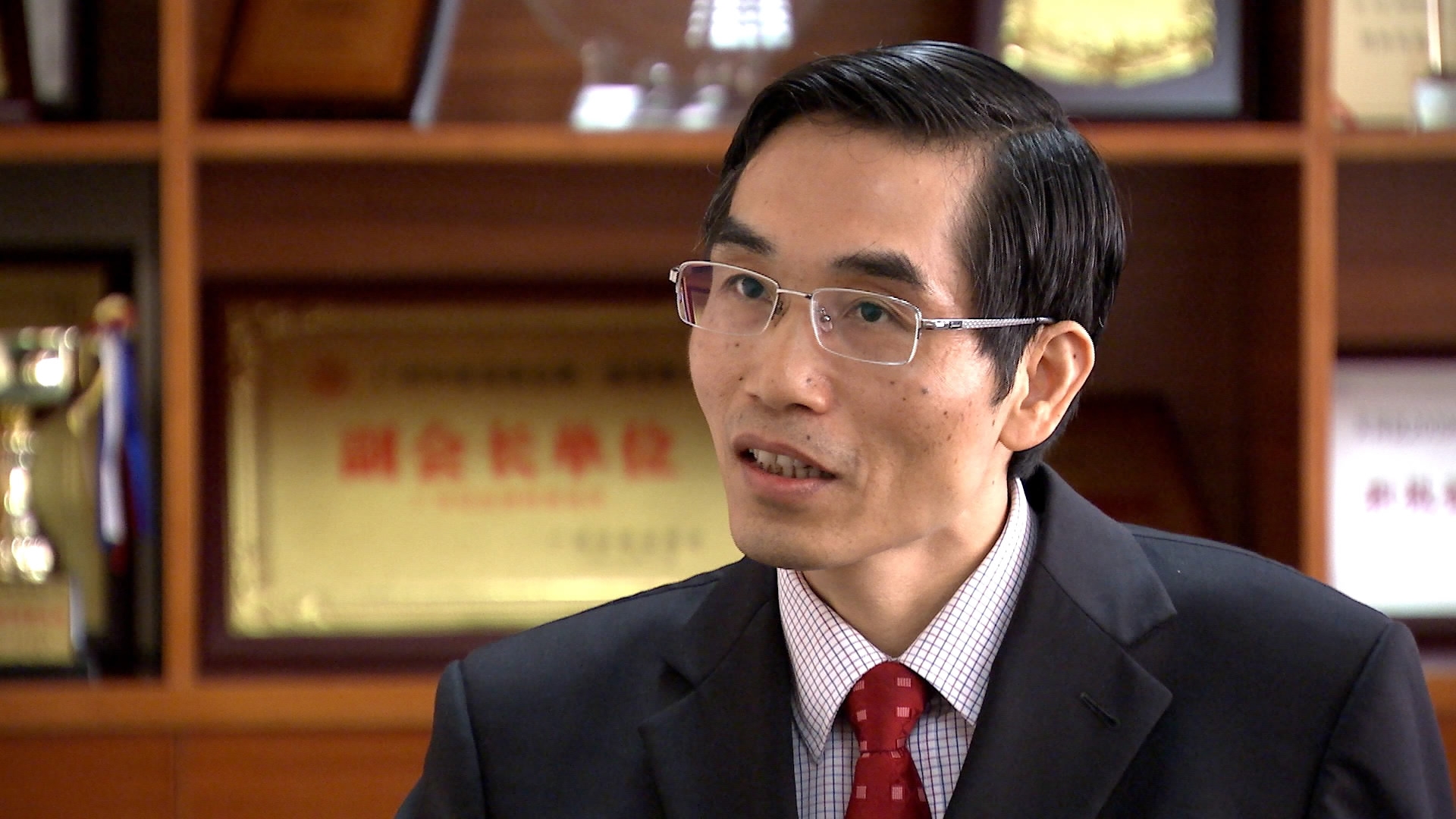
You Zhilong, director of the Family Law Committee of Guangdong Lawyers Association. /Feng Xin Photo
“A law should always be based on justice. Any law or judicial interpretation should not make a citizen sink into fear or be burdened with huge debt,” You said.
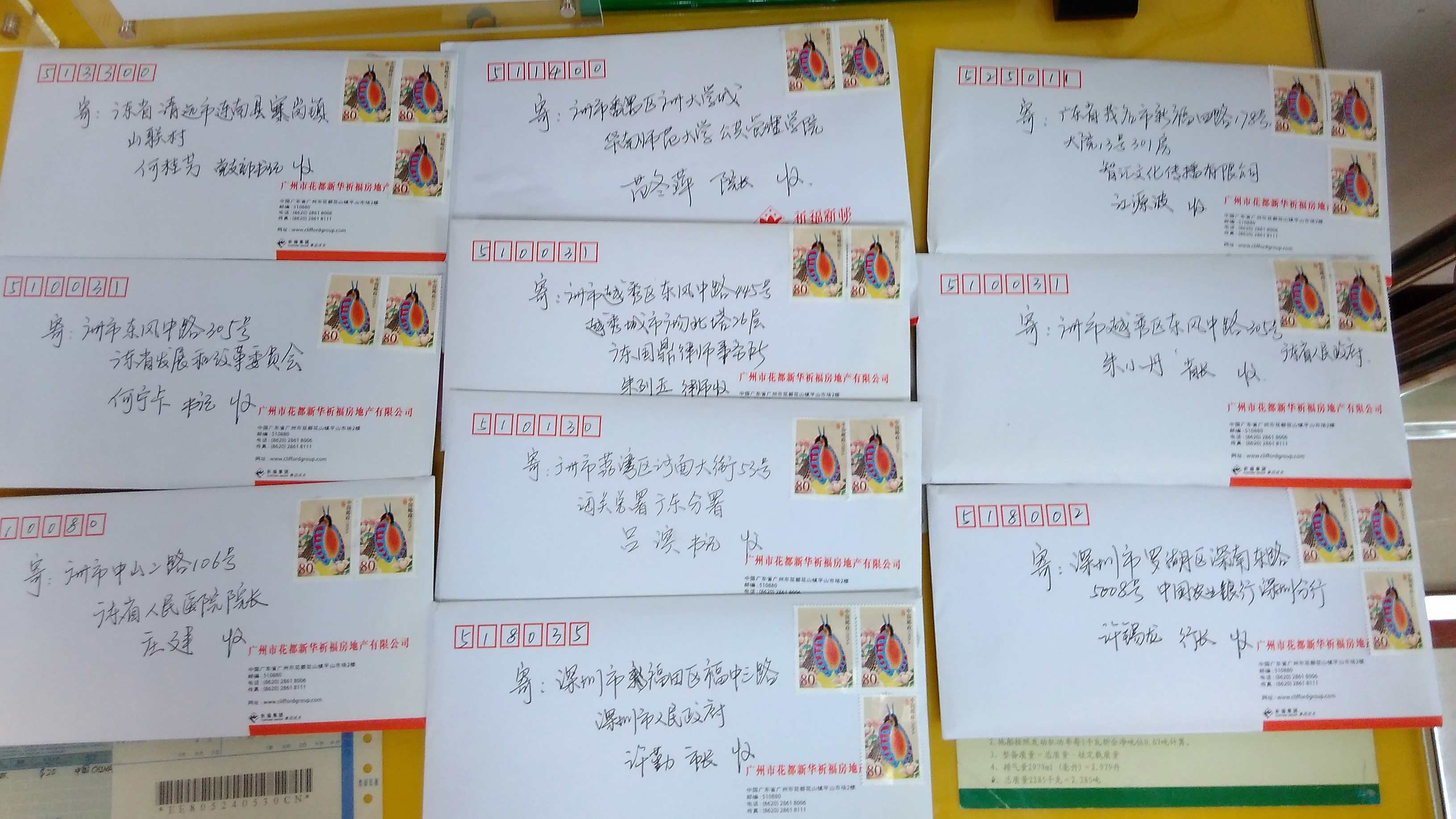
Members of the Article 24 Victim Support Group have sent thousands of letters to various government officials, but their effort has met little success. /Photo provided by the Article 24 Victim Support Group

Members of the Article 24 Victim Support Group have sent thousands of letters to various government officials, but their effort has met little success. /Photo provided by the Article 24 Victim Support Group
In the meantime, Li and the other support group members continue to write and send their petition files to anyone who might listen.
The women know they face a long road ahead. But they hope that maybe, just maybe, one day their voices will be heard.









